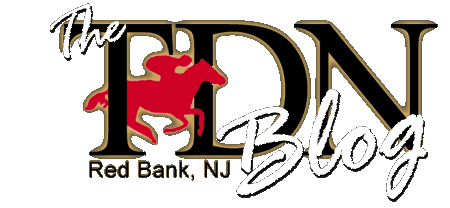Mark Cramer
 I used to think that
we horseplayers were keeping owners in business, thanks to the betting handle
we provide. But it may be that horse owners, through their own risk-taking, are
keeping players in business.
I used to think that
we horseplayers were keeping owners in business, thanks to the betting handle
we provide. But it may be that horse owners, through their own risk-taking, are
keeping players in business.
According to “The
Utility of Sport and Returns of Ownership: Evidence from Thoroughbred Racing” (Gamrat
and Sauer, Clemson University, 2000), “Most analyses of the earnings of
thoroughbred racehorses indicate that the average return to ownership of a
racehorse is negative.” Other studies echo this opinion. Gennaro (University of
Tennesee, 2003) writes that “Previous research demonstrates conclusively that
owning thoroughbred racehorses tends to be a losing financial proposition.”
In the Ed Bain past
performances, which contain owner statistics, I scanned a few days of racing
and extracted one particular owner who seemed to have the best winning
percentage. Triangulating with information from the Horse Racing Nation website and Equibase, I checked the records of
this owner. From the year 2000 to the present, his stable averaged earnings of
$3,234 per start, producing earnings
of $2,182,950 for the period of slightly over than 13 years. Subtracting
training, vet and other expenses, that looks like a loss to me.
That got me to
thinking that without risk-taking owners, we players would not have a life. So
maybe we really need each other: players and owners. Folks who believe that
such risk-taking is pathological would call us “co-dependents”.
I’ve struggled to come
up with some statistic that would show that a player has a better chance to
make a little money from this game than an owner. I suspect this is true but I
cannot prove it. My evidence is entirely anecdotal.
For the most part,
owners and players cross different paths, hardly realizing how much they need
each other.
The March-April
edition of Harvard Magazine (March-April
2012) features an interview with racing writer, publisher and player, Steven
Crist. Journalist Craig Lambert wrote: “People sometimes remark that the one
thing [Crist] hasn’t done in the sport is own a racehorse.” But Crist
responded: “I own the horse I’m betting on for one minute and 12 seconds, and
that’s good enough for me.”
This exemplifies a
convergence of betting on and owning a racehorse! My bicycle and betting
partner Alan Kennedy goes a step further. Like several of my racing friends,
he’s bridged the gap between player and owner.
“As for
owning horses,” Alan says, “I don't consider it a gamble, since the odds are so
much higher against the owner compared to the 15% betting takeout, so the net
result will be a financial loss. However, compared to owning a sports team, the
cost of racing a modest horse is a bargain for those who want to go beyond
betting on the races. The thrill of being in the paddock, talking to the
trainer and his or her crew, meeting the jockey who is wearing my silks, and maybe
even seeing my horse do well in a race - that is a priceless experience.”

No comments:
Post a Comment